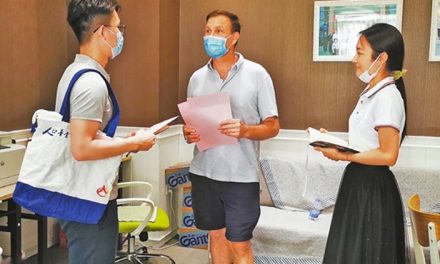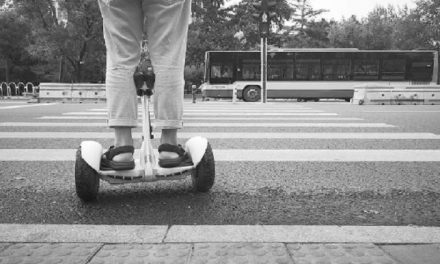Living in China can be tough, not knowing what resources are open to you and what to do under difficult or testing circumstances. We spoke with the in China to ask them some questions. While their answers are sometimes tailored towards British people, a lot of the advice is general – we hope it is of use to as many of you as possible.
My friend is suffering with mental health issues – how do I get them help?
One in four people experience mental health issues during their lifetime. Many people experiencing mental health issues will speak to friends and family before they speak to a health professional, so the support you offer can be invaluable.
It can be hard to know what to do, but being there for your friend and doing small things can help more than you think. Listening without passing judgment and offering reassurance helps. However, if they are not safe by themselves – as long as you feel able to do so, you should stay with them and help them call for an ambulance or get to A&E. If you feel personally in danger, call the police (110).
There are practical things you can do to support someone who is ready to seek help such as directing them to the right information and support: Mind and Rethink offer a range of advice and information. Samaritans UK offer confidential emotional support from trained volunteers via an email service at [email protected].
Samaritans Hong Kong offer confidential emotional support to people who are suicidal or are in general distress. They can be contacted 24/7 on (852) 2896 0000. They also offer a befriending service by Email: [email protected].
Lifeline China operates an English-speaking mental health helpline service for the international community across China. The service provides free, confidential and anonymous emotional support and information from 10am to 10pm 365 days a year via the telephone and live-chat.
What do I do if my child goes missing?
If you are concerned that your child has gone missing you should call the local police (110) immediately. If your child has been abducted overseas by their other parent or a relative, or you are worried that this may occur, you should follow the Foreign, Development & Commonwealth Office (FCDO) guidance on international parental child abduction.
Please notify the FCDO straight away on +86 (0) 10 8529 6600. The FCDO can signpost you to the relevant local authorities. You can also contact our NGO partner Reunite, a UK-based charity that provides practical advice, information and support to parents and families whose children have been, or might be, abducted or wrongfully retained overseas. Reunite can be contacted on their advice line: +44 (0) 116 2556 234 - or by email [email protected].
If you are in the UK and worried about a British national who you think is missing abroad, we can tell you how to make a missing person’s report to the local police so that Interpol enquiries can begin. Although we cannot carry out physical searches on your behalf, we can give you information about how to contact the local authorities. We can also put you in touch with Lucy Blackman Trust – who may offer further advice and help.
The UK has joined the 1980 Hague Convention on International Child Abduction and has an agreement with various countries that can help return an abducted child from certain countries. The UK cooperates with Hong Kong and Macau to implement the 1980 Hague Convention, but not the Chinese mainland.
I have overstayed my visa – how can I resolve this issue and minimize my punishment?
If you have overstayed your visa it is important that you report your situation to the Public Security Bureau (PSB) Entry & Exit Administration Office as soon as possible as you cannot leave until you get an exit visa. The longer you overstay the higher the fine (which increases every day you overstay) and the harsher the potential consequences. This could include up to 20 days in detention, deportation and potentially a ban on re-entry into China.
Unintentionally overstaying your visa is very easy to do. A tip to help avoid this is to note your date of entry, the number of entries allowed and the length of stay permitted and put a reminder in your phone. If you change your mind or need to stay longer, you can in many circumstances extend your stay via local PSB offices, but this must be before your visa runs out.
I am suffering domestic abuse at the hands of my partner, what should I do?
If you are in danger, call the police immediately on 110. If you are not in a position to talk, you can contact the police by text on 12110.
Above all, remember, it is not your fault. Anyone can be a victim of domestic abuse. Domestic abuse is not limited to physical violence; it is a form of power and control, which can manifest itself in many ways.
If you do get in touch with us, while we can’t and won’t tell you what to do, you will be listened to, believed and supported.
If you are planning to leave, take care over who to trust with any plans. Can you safely take legal advice, would an injunction be an option? Remember important papers, passports, legal documents, medication, essential clothing and items for children.
If you are staying, be ready to call the police if you or your children are in danger. Think about what legal options might be available to you - could you obtain a restraining order or injunction? You may wish to make notes of abusive incidents, including dates and times and details of injuries, keep copies of abusive text messages, emails and letters. If you do this, take care to store these securely.
Other things you could consider doing or preparing: tell someone you trust about the abuse and consider whether you could stay with them in an emergency; think about escape routes; keep some money, important documents and a set of keys in a safe place and carry a list of emergency numbers: police, relatives, trusted friends.
There is lots of practical information and advice online at gov.uk where you can also find links to specialist support organizations including: Refuge, Southall Black Sisters, Women’s Aid, Karma Nivarna and Respect.
Are drug raids still taking place in China?
Yes, drugs raids on bars, nightclubs and private homes can and do occur. There are severe penalties for drugs offences, including the death penalty. When such raids take place, you will be subject to on the spot drug testing and immigration checks. This may involve being kept at the location, or a secondary location, for several hours whilst hair and urine samples are taken, and passport and visa checks conducted.
Testing positive (even if drugs taken legally outside China), allowing others to take drugs in your home, being found in possession of drugs or found in breach of your visa conditions can have severe consequences - including lengthy prison sentences, fines, detention and deportation.
This is a place for show life about china, If these articles help you life better in china, Welcome to share this website to your friends, Or you can post questions about china life in FAQ, We will help you to find the right answer.






Recent Comments